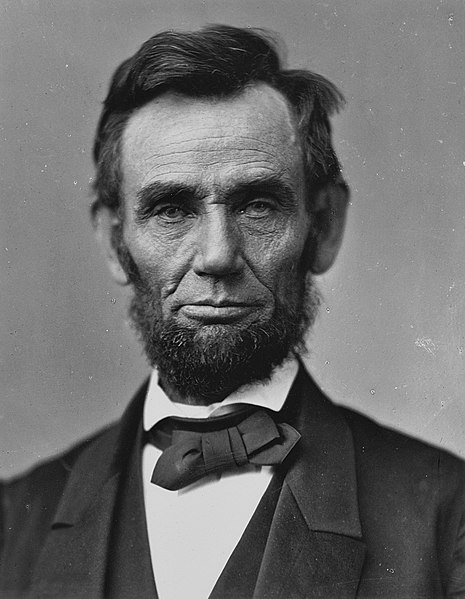Lincoln’s Legacy: Timeless Leadership Lessons for the Modern World
 Unveiling Lincoln’s Leadership Genius
Unveiling Lincoln’s Leadership Genius
Abraham Lincoln, the 16th President of the United States, has long been admired as a symbol of wisdom, integrity, and resilience. His leadership during one of the nation’s most tumultuous periods, the American Civil War, showcased his ability to navigate a divided country toward a more united and just future. Lincoln’s life and presidency offer a treasure trove of lessons that remain relevant to today’s leaders, regardless of their field or endeavor.
The purpose of this article is to delve into the life and stories of Abraham Lincoln, extracting valuable leadership lessons that can inform and inspire leaders in the 21st century. Through a careful examination of Lincoln’s actions, decisions, and character traits, we will provide insights that can be applied across various domains – from business and politics to education and community work.
As we explore these lessons, we will not only gain a deeper understanding of the qualities that made Lincoln an exceptional leader but also appreciate the timeless principles that underpin effective leadership. Through a combination of historical accounts, anecdotes, and case studies, we aim to demonstrate how Lincoln’s leadership can serve as a guiding light for those aspiring to make a lasting positive impact on their organizations and communities.
In this journey through Lincoln’s life, we will discuss a range of topics, including his humble beginnings, his exceptional communication skills, the role of emotional intelligence, his approach to building strong teams, the balance between decisiveness and adaptability, and his ability to lead through crisis. By the end of this article, readers will have a comprehensive understanding of the leadership lessons that can be drawn from one of America’s most admired and influential figures.
As we embark on this exploration of Lincoln’s life and leadership, it is essential to recognize that we all possess the potential to learn, grow, and become better leaders. By reflecting on the experiences and wisdom of those who have come before us, we can continue to develop our leadership capabilities and strive to make a positive difference in the world, just as Abraham Lincoln did over a century ago.
The Humble Beginnings
Abraham Lincoln’s journey to becoming one of the most revered leaders in American history began with humble origins. Born in a one-room log cabin in rural Kentucky on February 12, 1809, Lincoln’s early life was marked by hardship, struggle, and perseverance. His family’s meager means and frequent relocations set the stage for a challenging childhood, yet Lincoln’s determination to rise above his circumstances would ultimately shape the resilient and resourceful leader he would become.
Lincoln’s early life and upbringing
Raised in a family of modest means, Lincoln faced numerous challenges throughout his youth. His father, Thomas Lincoln, was a hardworking farmer who instilled in his children the importance of hard work and honesty. His mother, Nancy Hanks Lincoln, passed away when Abraham was only nine years old, leaving a profound impact on the future president. Despite these early adversities, Lincoln’s upbringing played a crucial role in molding his character and values, which would later serve as the foundation for his leadership style.
Overcoming adversity and self-education
Lincoln’s thirst for knowledge became evident early in his life. With limited access to formal education, he took it upon himself to learn from any available source. He borrowed books from neighbors, taught himself grammar, and eagerly absorbed any information he could find. As he later recounted, “My best friend is a person who will give me a book I have not read.” This passion for self-education allowed Lincoln to become a well-read and knowledgeable individual, setting him apart from many of his contemporaries.
The adversity Lincoln faced during his formative years taught him the value of resilience and determination. As a young man, he took on various jobs, including working as a store clerk, postmaster, and surveyor, all of which helped him develop a strong work ethic and a keen understanding of the human condition. These experiences equipped him with the ability to connect with people from all walks of life, a skill that would serve him well in his political career.
Lesson: The importance of resilience and continuous learning
The story of Lincoln’s humble beginnings offers essential leadership lessons for today’s leaders. One such lesson is the significance of resilience and determination in the face of adversity. Lincoln’s ability to persevere and overcome obstacles in his personal and professional life exemplifies the importance of grit and tenacity, qualities that are crucial for effective leadership.
Moreover, Lincoln’s commitment to self-education underscores the value of continuous learning and personal growth. In today’s rapidly evolving world, leaders must embrace the pursuit of knowledge and strive to stay ahead of the curve. By fostering a culture of learning within their organizations, leaders can ensure that they, as well as their teams, remain adaptable and well-equipped to face the challenges of an ever-changing landscape.
The early life of Abraham Lincoln teaches us the power of resilience and the importance of lifelong learning. By adopting these principles, leaders can draw from Lincoln’s example to build a strong foundation for their own leadership journey, empowering themselves and their teams to thrive in the face of adversity and change.
The Art of Communication
Abraham Lincoln’s extraordinary communication skills played a pivotal role in his leadership success. He was a masterful storyteller and a captivating public speaker, able to convey complex ideas with clarity and eloquence. His ability to connect with his audience, whether through speeches or written correspondence, was integral to his ability to inspire, persuade, and rally support. In this section, we will examine Lincoln’s communication style and discuss the timeless lessons modern leaders can learn from his example.
Lincoln’s storytelling and public speaking skills
Lincoln had an uncanny ability to captivate his audience through storytelling. He used anecdotes, parables, and humor to make his points more relatable and engaging. By drawing on his personal experiences and those of others, Lincoln was able to make complex concepts more accessible and resonate with people from diverse backgrounds. This skill allowed him to build rapport with his listeners, while also effectively conveying his message.
As a public speaker, Lincoln was known for his powerful and persuasive oratory. He understood the power of words and the importance of choosing them wisely. Through his speeches, he demonstrated an ability to distill complex ideas into simple yet profound messages, which captivated the hearts and minds of his audience. This talent was particularly evident in his famous debates with Stephen Douglas and his iconic speeches, such as the Gettysburg Address and his second inaugural address.
The Gettysburg Address: a case study
The Gettysburg Address, delivered on November 19, 1863, during the dedication of the Soldiers’ National Cemetery, is a prime example of Lincoln’s exceptional communication skills. In just 272 words, he managed to convey a powerful message about the significance of the ongoing Civil War and the importance of preserving the Union. He articulated a vision for a nation “conceived in liberty and dedicated to the proposition that all men are created equal” and called upon his fellow citizens to ensure that “government of the people, by the people, for the people, shall not perish from the earth.”
The brevity and impact of the Gettysburg Address demonstrate Lincoln’s mastery of clear, concise, and compelling communication. His ability to convey a profound message in a succinct manner has made this speech one of the most memorable and frequently cited in American history.
Lesson: The power of clear, concise, and compelling communication
Abraham Lincoln’s communication style offers valuable lessons for today’s leaders. First, the importance of clarity and conciseness cannot be overstated. In a world inundated with information, leaders must be able to articulate their ideas and vision in a way that is both understandable and memorable. By focusing on the essential message and avoiding unnecessary jargon, leaders can ensure that their audience grasps the core of their message.
Second, the use of storytelling and relatable language can be an effective way to engage and connect with one’s audience. By making complex concepts accessible through anecdotes and personal experiences, leaders can create a lasting impression on their listeners and inspire them to action.
Lastly, the power of persuasion is a critical component of effective communication. Lincoln’s speeches were not only eloquent and inspiring but also persuasive, rallying support for his cause and vision. Modern leaders must hone their persuasive skills, enabling them to influence and motivate their teams, stakeholders, and the broader public.
Abraham Lincoln’s exceptional communication abilities offer timeless lessons for leaders in any field. By embracing the power of clear, concise, and compelling communication, leaders can enhance their ability to inspire, persuade, and rally support for their vision and goals.
Emotional Intelligence
Abraham Lincoln’s emotional intelligence played a vital role in his leadership success. He possessed a deep understanding of human emotions and was able to manage his own emotions while empathizing with others. Lincoln’s emotional intelligence allowed him to connect with people on a personal level, inspire loyalty, and foster a collaborative atmosphere. In this section, we will explore the role of emotional intelligence in Lincoln’s leadership and discuss the lessons modern leaders can learn from his example.
Lincoln’s empathy and understanding of others
Empathy is a key component of emotional intelligence, and Lincoln demonstrated a remarkable ability to put himself in others’ shoes. He was known for his compassionate nature, treating people with kindness and respect regardless of their social standing or political beliefs. This quality enabled him to forge strong relationships with those around him, which in turn bolstered his ability to lead effectively.
Lincoln’s empathy also extended to his adversaries. He understood the importance of acknowledging and validating the perspectives of others, even when he disagreed with them. This open-mindedness and respect for differing opinions allowed him to navigate the complexities of his presidency and foster a more inclusive and collaborative environment.
The ability to connect and inspire people
Lincoln’s emotional intelligence went beyond empathy; he also possessed a remarkable ability to connect with people and inspire them to action. Through his words and actions, he demonstrated genuine concern for the welfare of others and consistently prioritized the greater good over his personal interests. This selflessness and dedication to service engendered trust and loyalty among his followers.
In addition, Lincoln’s ability to manage his emotions and remain composed under pressure contributed to his ability to inspire others. Even during the darkest days of the Civil War, he maintained a sense of hope and determination that buoyed the spirits of his supporters and provided a sense of direction for the nation.
Lesson: The role of emotional intelligence in effective leadership
Abraham Lincoln’s emotional intelligence offers valuable lessons for today’s leaders. First, developing empathy and understanding the emotions and perspectives of others is crucial for building strong relationships and fostering collaboration. By treating people with kindness and respect, leaders can create an inclusive atmosphere that encourages open communication and teamwork.
Second, the ability to connect and inspire people is an essential aspect of effective leadership. Leaders must be able to communicate a clear vision and demonstrate genuine concern for the well-being of their followers. By prioritizing the greater good and remaining composed under pressure, leaders can earn the trust and loyalty of their teams.
Lastly, emotional intelligence involves managing one’s own emotions, as well as understanding and responding to the emotions of others. By developing self-awareness and emotional regulation, leaders can navigate the challenges of their roles with grace and resilience.
Emotional intelligence is a critical component of effective leadership, as demonstrated by the example of Abraham Lincoln. By developing empathy, connecting with others, and managing their emotions, modern leaders can emulate Lincoln’s success and create a lasting positive impact on their organizations and communities.
Team of Rivals: Building a Strong Team
Abraham Lincoln’s approach to assembling his cabinet and building a strong team demonstrated his exceptional leadership skills. He was unafraid to surround himself with individuals who held differing opinions, even appointing his political rivals to key positions within his administration. This unique approach to team-building allowed him to harness the strengths and perspectives of a diverse group, which ultimately led to more effective decision-making and governance. In this section, we will explore Lincoln’s “Team of Rivals” and discuss the lessons modern leaders can learn from his example.
Lincoln’s unique approach to assembling his cabinet
When assembling his cabinet, Lincoln chose to include individuals who were not only capable and experienced but also held diverse opinions and perspectives. This decision was exemplified by his appointment of several of his former political rivals, including William H. Seward, Salmon P. Chase, and Edward Bates. By doing so, Lincoln created an environment that encouraged debate and discussion, ultimately leading to more well-informed decisions.
Lincoln’s approach to building his cabinet was not without its challenges. He faced criticism and skepticism from both supporters and detractors, and managing the strong personalities and competing interests within his administration required skill and diplomacy. However, Lincoln’s ability to maintain a sense of unity and focus on the greater good allowed him to navigate these challenges effectively.
Harnessing the strengths and mitigating the weaknesses of team members
Lincoln’s “Team of Rivals” approach also involved recognizing the strengths and weaknesses of his team members and using them to the advantage of his administration. By understanding the individual talents and abilities of each cabinet member, he was able to delegate responsibilities and tasks effectively, ensuring that each person’s unique skill set was put to good use.
At the same time, Lincoln was mindful of the potential pitfalls of assembling such a diverse group. He worked to mitigate the weaknesses and manage the conflicts that arose within his cabinet, skillfully balancing competing interests while maintaining focus on the common goal of preserving the Union.
Lesson: The value of diversity and inclusiveness in team building
Abraham Lincoln’s “Team of Rivals” offers valuable lessons for modern leaders in building strong and effective teams. First, it underscores the importance of diversity and inclusiveness in team composition. By embracing diverse perspectives and opinions, leaders can foster an environment that encourages debate, discussion, and ultimately, more well-informed decision-making.
Second, Lincoln’s approach demonstrates the need for leaders to recognize and leverage the strengths of their team members. By understanding the unique talents and abilities of each person, leaders can delegate responsibilities effectively and ensure that their teams are working in harmony to achieve common goals.
Lastly, Lincoln’s experience highlights the importance of conflict management and skillful diplomacy in leading diverse teams. While assembling a group of individuals with differing opinions can lead to disagreements and tensions, effective leaders must be able to navigate these challenges and maintain a sense of unity and focus on the shared objectives.
Abraham Lincoln’s “Team of Rivals” approach offers timeless insights into the value of diversity and inclusiveness in team-building. By embracing these principles, modern leaders can create strong, effective teams that are capable of overcoming challenges and achieving success together.
Decisiveness and Adaptability
Abraham Lincoln’s leadership during the Civil War showcased his ability to balance decisiveness with adaptability. He was a decisive leader, taking responsibility for tough decisions and standing firm in his convictions. At the same time, he was open to change and willing to adjust his strategies when circumstances called for it. This combination of traits allowed him to effectively navigate the challenges of his presidency and achieve remarkable outcomes. In this section, we will explore Lincoln’s decision-making process during the Civil War, his embrace of change and adaptability, and the leadership lessons that can be derived from his example.
Lincoln’s decision-making process during the Civil War
Throughout the Civil War, Lincoln faced numerous difficult decisions that would shape the course of the conflict and the future of the nation. As a leader, he was known for his methodical approach to decision-making, carefully considering all available information and consulting with advisors before making a final choice. He was also willing to assume responsibility for his decisions, even when they were unpopular or controversial.
One notable example of Lincoln’s decisiveness was his decision to issue the Emancipation Proclamation. Despite facing opposition from various quarters, Lincoln believed that declaring an end to slavery in the Confederate states would not only weaken the Confederacy but also provide a moral foundation for the Union’s cause. He stood firm in his conviction, ultimately signing the Emancipation Proclamation on January 1, 1863.
Embracing change and adjusting strategies
While Lincoln was a decisive leader, he was also adaptable and willing to change course when necessary. He recognized that circumstances could evolve, and he was open to reevaluating his decisions and strategies in light of new information. This ability to embrace change and adapt to shifting conditions was critical to his success as a wartime leader.
For instance, Lincoln went through several generals during the Civil War, continually searching for the right person to lead the Union Army to victory. Although some criticized his frequent changes in command, his persistence and adaptability ultimately led to the appointment of General Ulysses S. Grant, who played a crucial role in securing the Union’s victory.
Lesson: Balancing decisiveness with flexibility in leadership
Abraham Lincoln’s leadership during the Civil War offers valuable insights into the delicate balance between decisiveness and adaptability. Modern leaders can learn from his example and strive to develop the following qualities:
-
Decisiveness: Effective leaders must be able to make tough decisions, even when they are unpopular or controversial. By taking responsibility for their choices and standing firm in their convictions, leaders can inspire confidence and trust in their teams.
-
Adaptability: At the same time, leaders must be open to change and willing to adjust their strategies in response to evolving circumstances. By staying attuned to new information and embracing a flexible mindset, leaders can adapt to change and navigate the challenges that come their way.
-
Balancing the two: The key to effective leadership lies in striking the right balance between decisiveness and adaptability. Leaders must be firm in their convictions, but also open to reevaluating their decisions and strategies when necessary. This balance allows leaders to remain effective and responsive in a constantly changing world.
Abraham Lincoln’s ability to balance decisiveness with adaptability offers a valuable lesson for modern leaders. By embracing both qualities, leaders can chart a course that enables them to make tough decisions while remaining open to change and adaptation, ultimately achieving greater success in their endeavors.
Visionary Leadership
Abraham Lincoln’s visionary leadership played a significant role in shaping the future of the United States. He had a clear, transformative vision for the nation and was steadfast in his pursuit of that vision, even in the face of immense challenges. By examining Lincoln’s long-term vision for the United States, the Emancipation Proclamation, and the Thirteenth Amendment, we can glean valuable lessons on the importance of having a clear and transformative vision in leadership.
Lincoln’s long-term vision for the United States
From the outset of his presidency, Lincoln had a clear vision for the future of the United States. He believed in the preservation of the Union and the principles upon which it was founded, namely, liberty and equality for all. His ultimate goal was to create a nation that was united, free, and prosperous, where every individual had the opportunity to pursue their aspirations.
Throughout his presidency, Lincoln worked tirelessly to achieve this vision, navigating the complexities and challenges of the Civil War with unwavering determination. He understood that the war was not only a fight to preserve the Union but also an opportunity to reshape the nation and set it on a path toward greater equality and justice.
The Emancipation Proclamation and the Thirteenth Amendment
Lincoln’s visionary leadership was exemplified by two major achievements during his presidency: the Emancipation Proclamation and the Thirteenth Amendment. The Emancipation Proclamation, issued on January 1, 1863, declared that all slaves in Confederate territory were to be set free. While this executive order did not immediately end slavery, it was a bold and transformative step that altered the course of the Civil War and laid the groundwork for the eventual abolition of slavery in the United States.
The Thirteenth Amendment, which abolished slavery throughout the entire country, was another key component of Lincoln’s long-term vision for the United States. Passed by Congress in January 1865 and ratified in December of the same year, the amendment marked the culmination of Lincoln’s efforts to end slavery and ensure that the principles of liberty and equality were enshrined in the nation’s laws.
Lesson: The importance of having a clear and transformative vision
Abraham Lincoln’s visionary leadership offers valuable insights for today’s leaders. The following lessons can be derived from his example:
-
Clarity of vision: Effective leaders must have a clear and compelling vision for the future. Lincoln’s unwavering commitment to preserving the Union and promoting equality served as a guiding force throughout his presidency, enabling him to navigate the challenges of the Civil War and achieve transformative change.
-
Pursuit of transformative goals: Visionary leaders are not content with maintaining the status quo; they seek to bring about significant and lasting change. Lincoln’s Emancipation Proclamation and the Thirteenth Amendment demonstrate his commitment to transformative goals that reshaped the nation and set it on a path toward greater equality and justice.
-
Perseverance and determination: Achieving a transformative vision often requires overcoming substantial obstacles and challenges. Lincoln’s perseverance and determination in the face of adversity are a testament to the importance of staying focused on one’s vision and working tirelessly to bring it to fruition.
Abraham Lincoln’s visionary leadership serves as a powerful example of the importance of having a clear and transformative vision. By embracing this principle, modern leaders can chart a course toward significant and lasting change, ultimately shaping a better future for their organizations and communities.
Leading Through Crisis
Abraham Lincoln’s leadership during the Civil War offers profound insights into the art of leading through crisis. His unwavering resolve, ability to maintain focus on the greater goal, and commitment to his values allowed him to navigate the tumultuous period and achieve remarkable outcomes. In this section, we will delve into Lincoln’s steadfastness during the Civil War, his focus on the greater goal, and the leadership lessons that can be gleaned from his example in terms of effective crisis management and staying true to one’s values.
Lincoln’s steadfastness during the Civil War
Throughout the Civil War, Lincoln faced an array of daunting challenges, including military setbacks, political opposition, and personal loss. Despite these difficulties, he remained steadfast in his commitment to preserving the Union and promoting equality. His unwavering resolve served as a source of strength and inspiration for those around him and played a critical role in his ability to lead the nation through the crisis.
Lincoln’s resilience and determination were particularly evident in his response to military defeats. Rather than succumbing to despair or losing faith in the Union cause, he used these setbacks as opportunities to learn and adapt, ultimately emerging stronger and more determined than before.
Maintaining focus on the greater goal
In the midst of the Civil War, Lincoln maintained a relentless focus on the greater goal of preserving the Union and advancing the cause of liberty and equality. He understood that the conflict was not merely a struggle for political power but a defining moment in the nation’s history, with the potential to reshape the United States and set it on a path toward greater justice and prosperity.
This focus on the greater goal enabled Lincoln to make difficult decisions and prioritize the needs of the nation over personal or political considerations. It also provided a sense of direction and purpose for the Union cause, inspiring those around him to persevere in the face of adversity.
Lesson: Effective crisis management and staying true to one’s values
Abraham Lincoln’s leadership during the Civil War offers valuable lessons for modern leaders facing crises:
-
Steadfastness: In times of crisis, leaders must display unwavering resolve and determination. By remaining steadfast in their commitment to their goals and values, they can inspire confidence and loyalty in their teams and maintain the strength to persevere through challenges.
-
Focus on the greater goal: During a crisis, it is essential for leaders to maintain a clear focus on the greater goal and prioritize long-term objectives over short-term gains. By keeping the bigger picture in mind, they can make more informed decisions and navigate the complexities of the crisis more effectively.
-
Staying true to one’s values: Crises often test a leader’s values and convictions. Effective leaders stay true to their values, even when faced with difficult choices or pressure to compromise. By adhering to their principles, they can maintain their integrity and ensure that their actions align with the greater good.
Abraham Lincoln’s leadership during the Civil War provides a powerful example of effective crisis management and the importance of staying true to one’s values. By drawing on these lessons, modern leaders can navigate crises with resilience, determination, and a clear sense of purpose, ultimately emerging stronger and more capable than before.
Servant Leadership
Abraham Lincoln’s approach to leadership embodied the principles of servant leadership, a philosophy that emphasizes placing the needs of others above one’s own and striving to serve the greater good. Lincoln’s focus on the greater good over personal interests, his prioritization of the needs of the people, and his selfless dedication to the nation offer valuable insights for modern leaders seeking to make a lasting impact. In this section, we will explore Lincoln’s servant leadership and the lessons that can be derived from his example.
Lincoln’s focus on the greater good over personal interests
Throughout his presidency, Lincoln consistently demonstrated a focus on the greater good above his own personal interests. He made difficult decisions and took unpopular stances, understanding that his choices might jeopardize his political career or personal reputation. His commitment to preserving the Union and advancing the cause of liberty and equality superseded any desire for personal gain or recognition.
Lincoln’s selflessness was exemplified by his “Team of Rivals” approach to assembling his cabinet, which saw him appointing political rivals to key positions within his administration. By prioritizing the needs of the nation over his own ego, Lincoln created a diverse and capable team that was instrumental in navigating the challenges of the Civil War.
Prioritizing the needs of the people
As a servant leader, Lincoln was deeply committed to the welfare of the people he served. He recognized that his primary responsibility was to the citizens of the United States, and he worked tirelessly to ensure their needs were met and their voices heard. Throughout the Civil War, he prioritized the needs of the people, from soldiers on the battlefield to families struggling to make ends meet.
Lincoln’s compassion and empathy for the people he served were evident in his interactions with the public, as well as his policies and decisions. He frequently visited hospitals to offer comfort to wounded soldiers, and he made a point of listening to the concerns and grievances of ordinary citizens, taking their input into account when making decisions.
Lesson: Embracing servant leadership for lasting impact
Abraham Lincoln’s example offers valuable lessons for modern leaders seeking to embrace servant leadership:
-
Focus on the greater good: Servant leaders prioritize the greater good above their own personal interests. By maintaining a clear focus on the goals and values that drive their work, they can make decisions that serve the best interests of their team, organization, or community.
-
Prioritize the needs of others: Servant leaders recognize the importance of meeting the needs of those they serve. By placing the needs of others at the forefront of their decision-making, they can build trust, loyalty, and a sense of unity among their followers.
-
Embrace humility and selflessness: Servant leaders are characterized by humility and selflessness, qualities that enable them to put the needs of others first and work tirelessly in the service of their goals. By adopting a humble and selfless approach to leadership, leaders can create a lasting impact and inspire others to follow in their footsteps.
Abraham Lincoln’s servant leadership offers a powerful example of the impact that selflessness, humility, and a focus on the greater good can have on an organization or community. By embracing these principles, modern leaders can create a lasting legacy and inspire those around them to strive for a better future.
Embracing Lincoln’s Timeless Leadership Principles
Abraham Lincoln’s leadership during one of the most tumultuous periods in American history offers a wealth of insights and lessons for modern leaders seeking to navigate the challenges of today’s complex world. As we have explored in this article, Lincoln’s leadership was characterized by his empathy, strong communication skills, ability to build diverse teams, decisiveness, adaptability, visionary outlook, resilience during crises, and commitment to servant leadership.
Drawing on the examples and lessons outlined in each section of this article, leaders can develop a comprehensive understanding of Lincoln’s leadership style and apply these principles to their own organizations and communities:
-
Embrace empathy and active listening: By developing a deep understanding of the needs and concerns of those they serve, leaders can create more inclusive, supportive environments that foster trust and collaboration.
-
Master the art of communication: Effective communication is critical for inspiring, motivating, and guiding those around them. Leaders must develop the ability to articulate their vision and convey their ideas clearly, concisely, and persuasively.
-
Build diverse and collaborative teams: By fostering diversity and promoting collaboration within their teams, leaders can tap into the full range of talents, perspectives, and experiences needed to achieve their goals.
-
Balance decisiveness with adaptability: Effective leaders must be able to make tough decisions while remaining open to change and adaptation in the face of evolving circumstances.
-
Pursue a transformative vision: By having a clear, compelling vision for the future, leaders can inspire their followers to strive for lasting change and create a better world.
-
Lead through crises with resilience and determination: By remaining steadfast in their commitment to their values and goals, leaders can navigate crises with resilience and emerge stronger than before.
-
Embrace servant leadership: By placing the needs of others above their own and focusing on the greater good, leaders can create a lasting impact and inspire those around them to strive for a better future.
In conclusion, the leadership lessons and stories of Abraham Lincoln offer a powerful blueprint for modern leaders seeking to create positive change and leave a lasting legacy. By embracing the principles that guided Lincoln’s leadership and applying these lessons to their own lives, today’s leaders can rise to the challenges they face and make a meaningful difference in the world.






